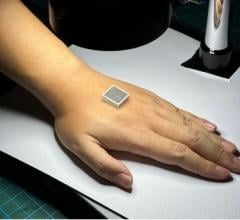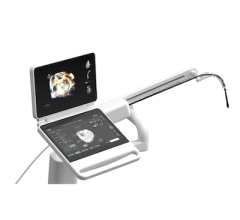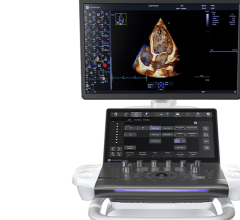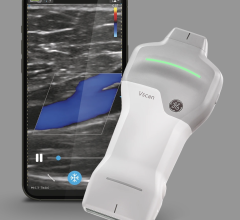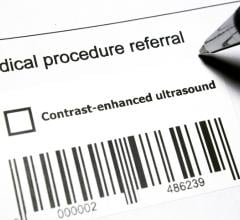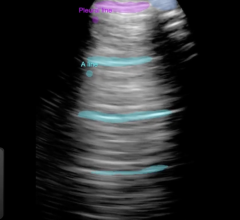
April 24, 2015 – A new clinical trial is testing the feasibility and efficiency of a doctor in New York City remotely performing long-distance, tele-robotic ultrasound exams over the Internet on patients in Chicago.
The study is a research collaboration between cardiovascular imaging specialists of Icahn School of Medicine at Mount Sinai in New York and Rush University Medical Center in Chicago.
The research team is investigating if remote, long-distance tele-robotic ultrasound exams of the carotid artery in the neck could be just as efficient as traditional, in-person manual ultrasound exams to test for signs of carotid intima-media thickness and carotid atherosclerotic plaque; both conditions are risk factors for cardiovascular events such as heart attack and stroke.
The study, enrolling 100 participants over the age of 60 in Chicago at Rush, is using a small, robotic arm outfitted with ultrasound technology and connected to a personal computer with a standard Internet connection. The robot is controlled over the Internet by a Mount Sinai cardiovascular specialist with the ability to complete a scan of the carotid artery in just 4 minutes. In addition, each patient will also receive a manual, in-person ultrasound exam by Rush to compare detection results.
“Launching long-distance, tele-robotic ultrasound exams between two major hospitals in two large cities is a sign that we may be able to make waves in accelerating access to and cost-effectiveness of this critical heart health imaging diagnostic tool to other cities, small towns, or rural communities in need,” said Partho P. Sengupta, M.D., the study’s principal investigator at Mount Sinai and director of interventional echocardiography and cardiac ultrasound research, and associate professor of medicine (cardiology) at Icahn School of Medicine at Mount Sinai.
“Imaging technology is evolving at a rapid pace. If this tele-health breakthrough proves feasible and successful it may open the door for more accessible screening, prevention, and diagnostic capabilities for patients who may be at high-risk for cardiovascular diseases,” said Rami Doukky, M.D., MSc, the study’s principal investigator at Rush, professor of medicine and radiology at Rush Medical College and the interim chief of cardiology at the John H. Stroger, Jr. Hospital of Cook County in Chicago.
“Our platform brings together remotely controllable robotics, ultrasound and telepresence to allow an experienced operator located anywhere in the world to perform an ultrasound exam at a distance,” said Jeffrey Soble, M.D., associate professor of cardiology at Rush University Medical Center. Soble is one of the creators of the novel tele-robotic healthcare technology being tested called TRUDI (Tele-Robotic Ultrasound for Distance Imaging), a product of the company TeleHealthRobotics which he co-founded with biomedical engineer Sarah Doherty.
This new pioneering clinical trial in the United States, builds upon the recent research breakthrough collaboration of Mount Sinai and TeleHealthRobotics’ technology using remote, long-distance robotic-assisted ultrasound imaging internationally.
While in Germany, Mount Sinai’s Sengupta used TRUDI to perform the first robot-assisted trans-Atlantic ultrasound examination on a person in Boston. “Our successful first-in-man international experiment opened up a new frontier for the use of remote, robotic ultrasound imaging that could potentially be more efficient and cost-effective overall for healthcare delivery,” said Sengupta.
In addition, Mount Sinai and collaborators in Sweden tested the feasibility of similar tele-robotic ultrasound technology within Sweden for heart failure patients at a remote primary care center located a far distance from the nearest Swedish hospital. “Our tele-robotic ultrasound approach reduced the time to care and improved patient satisfaction substantially,” said Jagat Narula, M.D., Ph.D., that study’s senior investigator and Mount Sinai’s director of cardiovascular imaging.
“Our recent research breakthroughs give us a glimpse of what to expect in the near future — a patient-friendly imaging technology at your doorstep,” added Narula.
Valentin Fuster, M.D., Ph.D., director of Mount Sinai Heart at Mount Sinai says: “Tele-robotic imaging may be the key ‘helping hand’ we need to accelerate greater local and global healthcare access.”
For more information: www.mountsinai.org

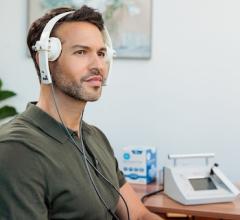
 January 28, 2026
January 28, 2026 

